New book sets out the role of geoscience in achieving a sustainable future
The role of geoscience in achieving the UN Sustainable Development Goals is the subject of a new book edited by staff at the British Geological Survey (BGS) and Geology for Global Development (GfGD), a charity which aims to promote the role of geology in sustainable development.
21/04/2021 By BGS Press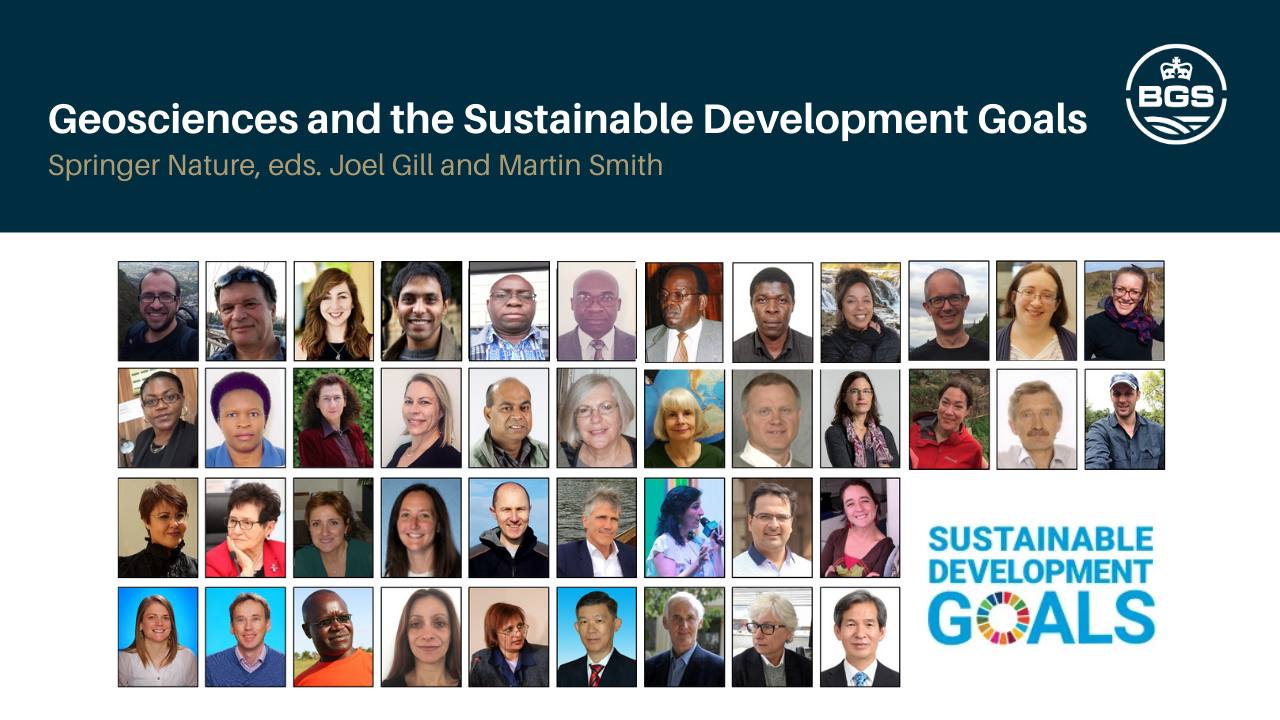
The role of geoscience in achieving the UN Sustainable Development Goals is the subject of a new book edited by staff at BGS and Geology for Global Development (GfGD), a charity that aims to promote the role of geology in sustainable development.
In 2015, global leaders came together at the United Nations to agree 17 Sustainable Development Goals (SDGs), providing a blueprint to create a better and more sustainable world for all with a vision of ‘a world free of poverty, hunger, disease and want, where all life can thrive’.
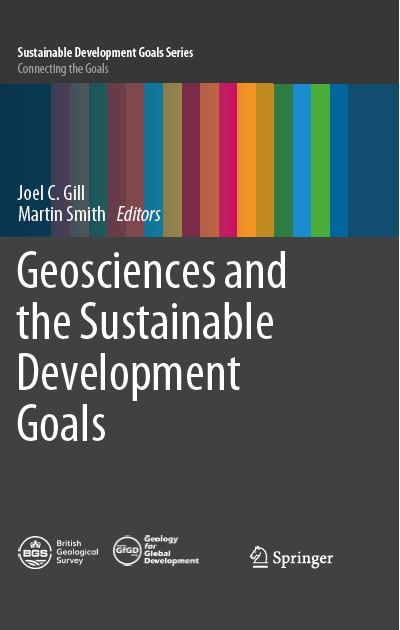
Geosciences and the Sustainable Development Goals, published by Springer-Nature, explores how geoscientists’ understanding of the natural environment is essential to achieving this vision. Edited by BGS International Development Geoscientist, Dr Joel C Gill and BGS Global Science Director, Dr Martin Smith, the book features contributions from 42 authors from across six continents.
The transformational vision of the 2030 Agenda for Sustainable Development demands our attention and action.
Tackling these complex challenges requires interdisciplinary solutions, engagement and participation by diverse groups from across sectors and disciplines. This includes geoscientists. We wrote this book to demonstrate how geoscientists’ understanding of Earth systems, dynamics and resources can support sustainable growth and decent jobs, resilient cities and infrastructure, access to basic services, food and water security, and effective environmental management.
We hope it will support geoscientists, in all sectors and specialisms, to play their part in securing a sustainable and equitable future for all.
Dr Joel Gill, BGS International Development Geoscientist
Although geoscientists are encouraged to take an active role in achieving the SDGs, sustainability concepts are not always included in the traditional education of many geoscientists, which could limit their ability to engage with them in a meaningful way.
The book takes readers through 17 chapters, each exploring how geoscience contributes to the 17 SDGs through the diverse perspectives and examples of the global authors.
It discusses a range of themes from ethics, to equity, conduct, and partnerships, as well as exploring many varied aspects of geoscience such as water, energy, minerals, engineering geology and geological hazards.
Dr Gill added:
This book is both a call-to-action and a reminder that ensuring lasting, positive change depends on how we work and our commitments to ethical practice, strong partnerships, integrity, and diversity, equality and inclusion.
Each chapter includes learning resources to help educators contextualise and apply the substance of the book.
The book is delivered by BGS and Geology for Global Development, which was made possible by National Capability funding from the Natural Environment Research Council (NERC), as part of Geoscience for Sustainable Futures.
Relative topics
Further information
Please contact Dr Joel C. Gill and Dr Martin Smith
Book Website: Geosciences and the Sustainable Development Goals | SpringerLink
Further Resources
Podcast (January 2021): Sustainable Development Goals with Dr Joel Gill – British Geological Survey (bgs.ac.uk)
Blog (September 2020): New Book: Geosciences and the Sustainable Development Goals / / by Joel Gill and Martin Smith (britgeopeople.blogspot.com)
External Blog (February 2020): GeoLog | GeoTalk: Joel Gill discusses the UN’s Sustainable Development Goals and the ‘Decade of Action’ (egu.eu)
Related news
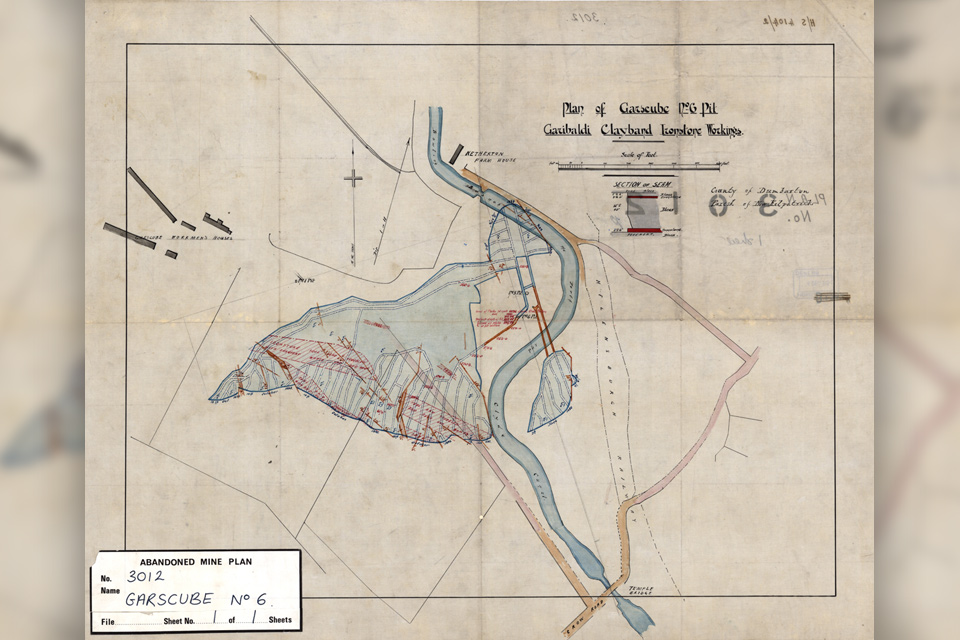
Release of over 500 Scottish abandoned-mine plans
24/06/2025
The historical plans cover non-coal mines that were abandoned pre-1980 and are available through BGS’s plans viewer.
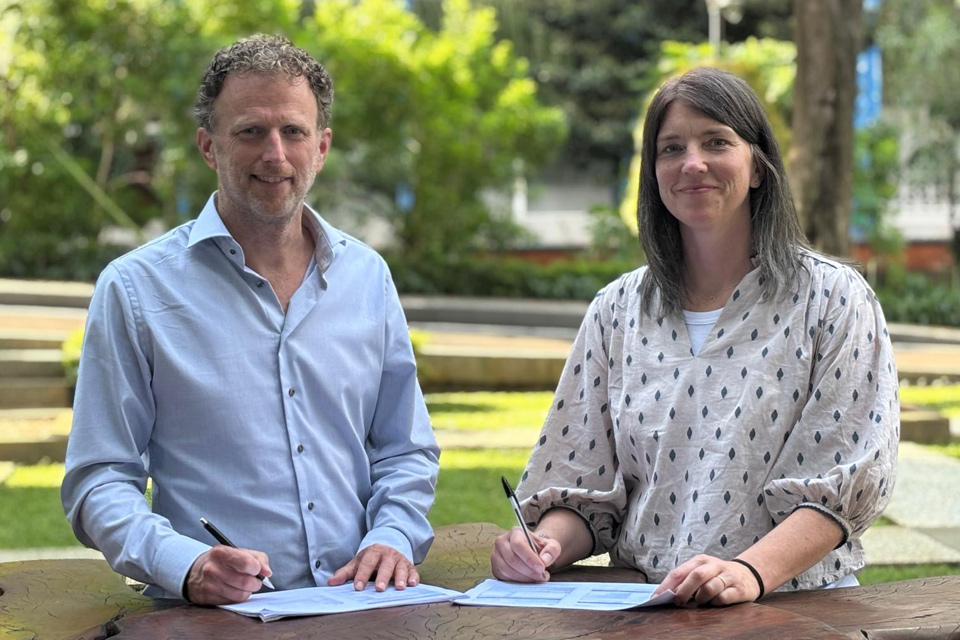
New collaboration aims to improve availability of real-time hazard impact data
19/06/2025
BGS has signed a memorandum of understanding with FloodTags to collaborate on the use of large language models to improve real-time monitoring of geological hazards and their impacts.

Modern pesticides found in UK rivers could pose risk to aquatic life
17/06/2025
New research shows that modern pesticides used in agriculture and veterinary medicines have been found for the first time in English rivers.

Goldilocks zones: ‘geological super regions’ set to drive annual £40 billion investment in jobs and economic growth
10/06/2025
Eight UK regions identified as ‘just right’ in terms of geological conditions to drive the country’s net zero energy ambitions.
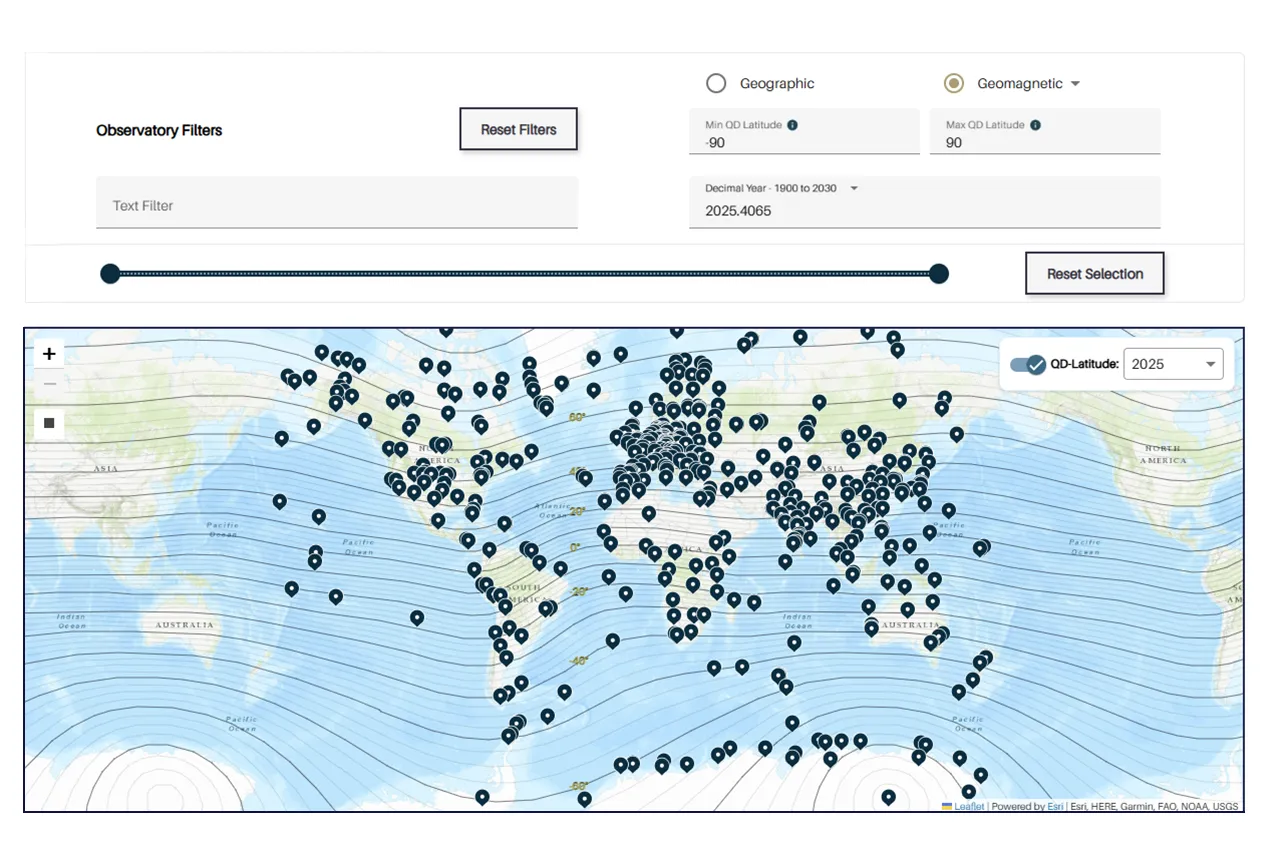
Upgraded web portal improves access to geomagnetism data
02/06/2025
BGS’s geomagnetism portal, which holds data for over 570 observatories across the world, has received a significant update.

BGS digital geology maps: we want your feedback
29/05/2025
BGS is asking for user feedback on its digital geological map datasets to improve data content and delivery.

What is the impact of drought on temperate soils?
22/05/2025
A new BGS review pulls together key information on the impact of drought on temperate soils and the further research needed to fully understand it.
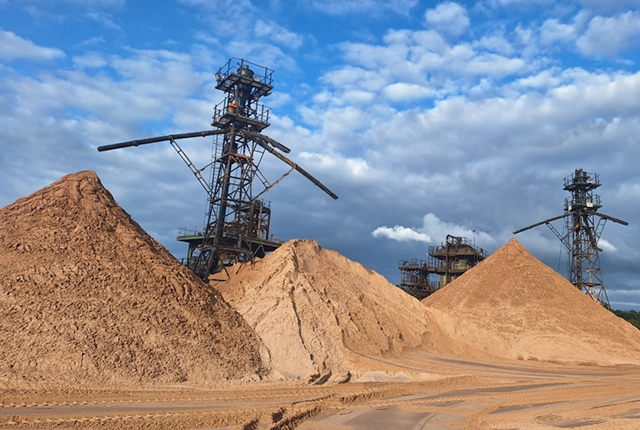
UK Minerals Yearbook 2024 released
21/05/2025
The annual publication provides essential information about the production, consumption and trade of UK minerals up to 2024.

BGS scientists join international expedition off the coast of New England
20/05/2025
Latest IODP research project investigates freshened water under the ocean floor.

New interactive map viewer reveals growing capacity and rare earth element content of UK wind farms
16/05/2025
BGS’s new tool highlights the development of wind energy installations over time, along with their magnet and rare earth content.
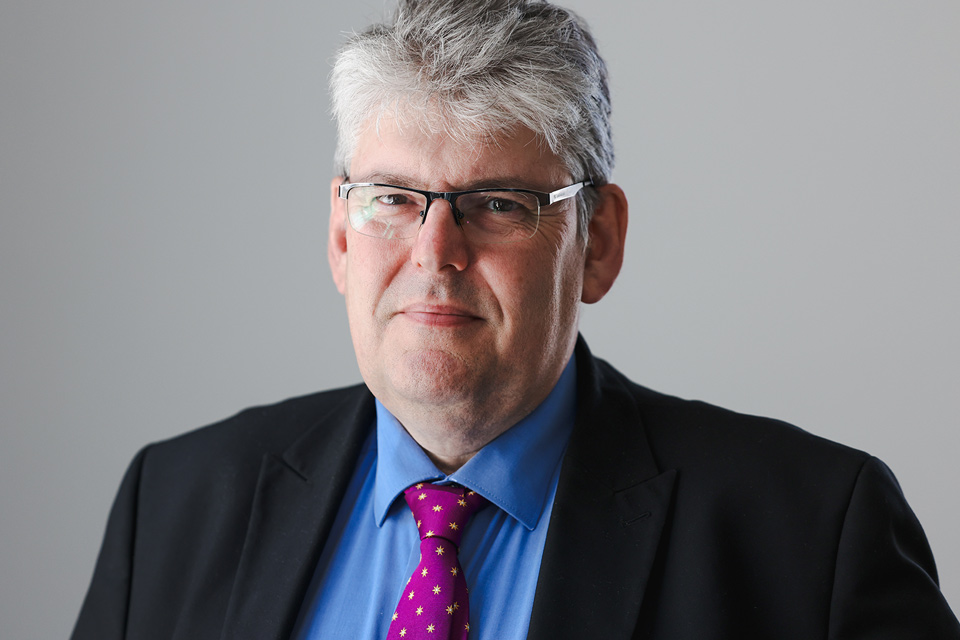
UKRI announce new Chair of the BGS Board
01/05/2025
Prof Paul Monks CB will step into the role later this year.
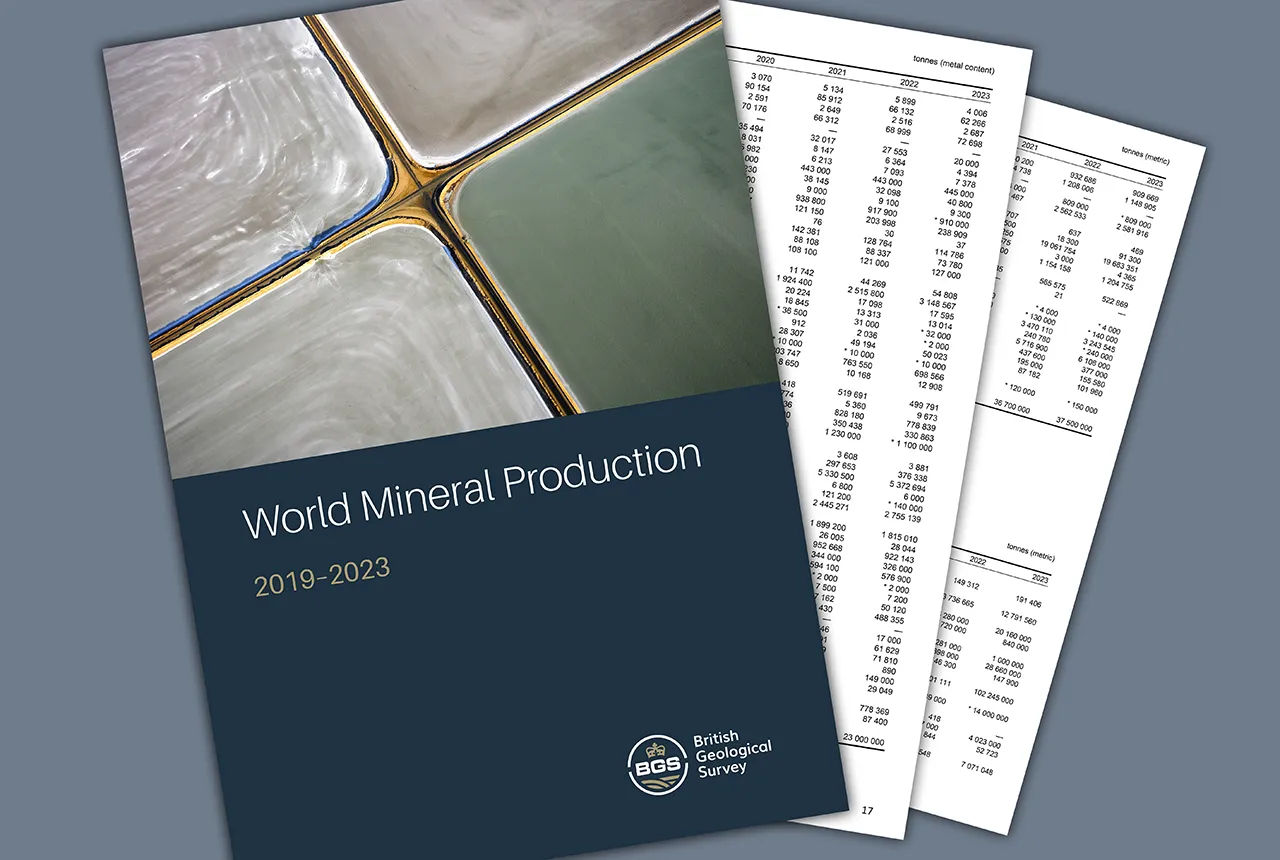
Latest mineral production statistics for 2019 to 2023 released
28/04/2025
More than 70 mineral commodities have been captured in the newly published volume of World Mineral Production.


